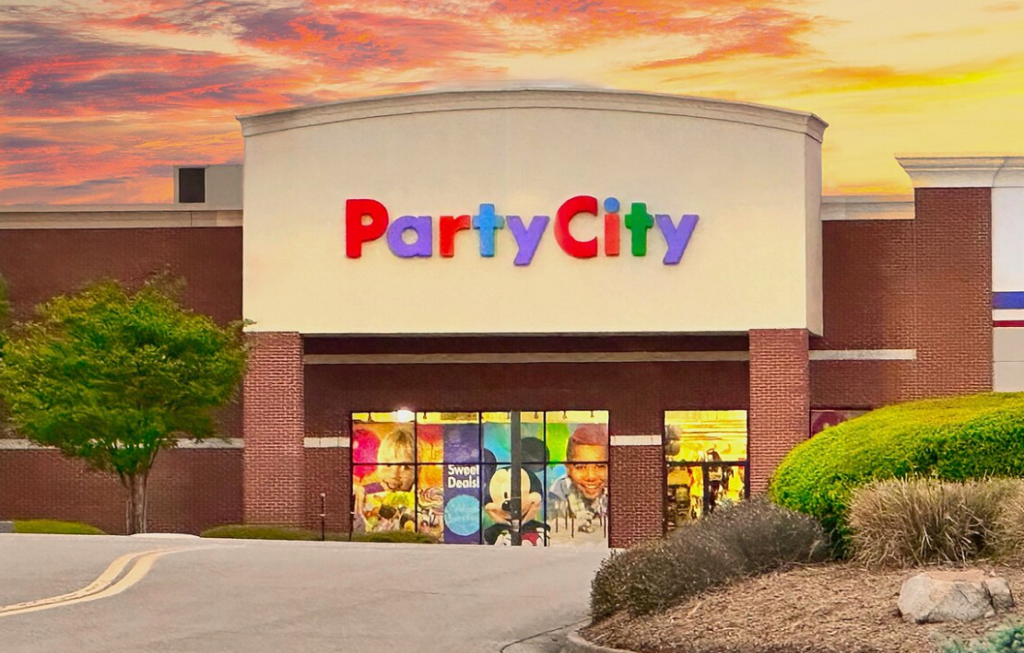
A new era has dawned on the retail landscape as many large chains are shutting underperforming stores or filing for bankruptcy to bring an end to some of the most iconic names in the industry. Included in that list is Party City, once the largest party supply retailer in the United States, Canada, and Mexico, finally officially announcing its closure after almost 40 years of operation.
At one point, Party City operated 850 stores in 70 countries and became synonymous with celebrations and festive occasions. But rising operational costs, soaring rents, employee salaries, and the proliferation of smash-and-grab thefts made it impossible to maintain profitability. These issues reverberate across the retail industry, which has also seen retail giants such as Walmart, Stop & Shop, and Rite Aid close underperforming locations.
Aftermath of Party City’s Closure
Party City’s closure creates a gap in the retail party supply market. The retailer, popular for everything from balloons to costumes and even themed décor for holidays and birthdays, was a go-to place for millions. After declaring bankruptcy and downsizing many stores in an effort to stay afloat, the pressures of inflation and declining consumer spending proved too much for it to overcome.
Bankruptcies and Store Closures-A Retail Epidemic
The fall of Party City didn’t happen in a vacuum. In recent years, a spate of major retailers-from Bed Bath & Beyond onward-have filed for bankruptcy. Bed Bath & Beyond’s inability to evolve consumer behaviors and online competition includes many of the same themes that have beset numerous brick-and-mortar stores across the United States.
In addition to the Stop & Shop, Rite Aid, and Walmart store closures, industry predictions show more cutbacks are on the horizon. Walgreens, Macy’s, Advanced Auto Parts, and Family Dollar are a few of the chains expected to announce store closures in the coming months.
Â
The Cost of Doing Business
The challenges that beset retailers today are multi-dimensional. Operational costs have shot through the roof, where rents and salaries have reached unsustainable levels. In addition, organized retail crime-especially smash-and-grab thefts-has made turning a profit a hard thing for stores to do. These incidents result in direct losses apart from the extra expenditure on measures for security.
For companies like Party City that relied on high-volume, low-margin sales, these pressures proved insurmountable. The pandemic accelerated the decline for many retailers as lockdowns shifted consumer preferences toward e-commerce and put physical stores at a disadvantage.
What’s Next for Retail?
This wave of closures and bankruptcies underlines how desperately retail businesses need to evolve. Those that are likely to thrive in today’s climate are the ones who adopt technology, streamline their operations, and reimagine the traditional model of retail. Many retailers have moved their focus toward smaller store formats, digital-first approaches, and leveraging data to better understand consumers’ behavior.
For consumers, these closures mean the end of convenience and variety in some sectors. Party City’s absence will no doubt be felt by families planning celebrations, just as the closure of familiar grocery or pharmacy locations disrupts communities.
As the retail industry rebalances, the central question remains: who will innovate fast enough to survive in a world where operational efficiency, safety, and adaptability are paramount? The answer will shape the future of how and where we shop.
Final Thoughts
The story of Party City’s rise and fall is a poignant reminder of just how fragile retail can be in an economy that’s changing so fast. While the end of an era for some, it’s also an opportunity for other retailers to reimagine how they connect with consumers in the face of modern challenges. As store closures continue to ripple across the industry, the retail sector’s evolution is far from over.
If you have any questions about this information or title insurance, please contact Ralph Aponte: 732.914.1400.
Counsellors Title Agency, www.counsellorstitle.net, founded in 1996, is one of New Jersey’s most respected title agencies, serving all 21 New Jersey counties with title insurance, clearing title, escrow, tidelands searches, and closing and settlement services for commercial or industrial properties, waterfront properties and marinas, condominiums, townhouses or residential single-family homes. Counsellors Title also features its own Attorney Settlement Assistance Program™ [ASAP], which is an individual resource customized to fit the needs specifically of real estate attorneys, including, Documentation, Preparation, Disbursement of Funds, Attendance at Closing, HUD Preparation or Post-Closing Matters.
Connect with Ralph on LinkedIn:Â https://www.linkedin.com/in/ralphaponte/
